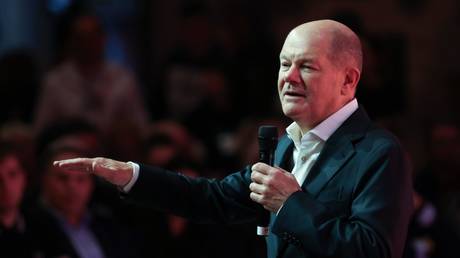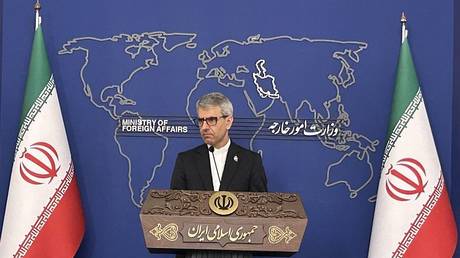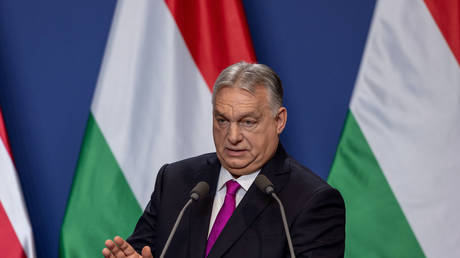
The German chancellor denounced what he called the US tech billionaire’s support for the “far-right”
German Chancellor Olaf Scholz has lashed out at what he called US tech billionaire Elon Musk’s interference in EU politics. The chancellor said that while he does not object to Musk expressing his opinions, he is concerned about the political groups he supports.
In December, the Tesla and SpaceX CEO called the right-wing Alternative for Germany (AfD) the only party capable of “saving Germany” and praised its anti-immigration stance, while calling Scholz an “incompetent fool.” The German leader hit back by saying Musk is seeking attention online, urging people to not “feed the troll.”
Speaking to journalists on Friday, the chancellor called Musk’s actions a threat to the EU. “This is something that is completely unacceptable, it endangers the democratic development of Europe, it endangers our community and it is to be criticized,” he said following a meeting with Swedish Prime Minister Ulf Kristersson.
Scholz stated that while Musk – who has emerged as a close adviser to US President-elect Donald Trump – has every right to express his political opinions, he is concerned that the tech billionaire “supports the extreme right throughout Europe, in Britain, in Germany, in many, many other countries, and that is something that is completely unacceptable.”
Last week, Musk hosted a livestream with AfD co-chair Alice Weidel on his social media platform, X. During the conversation, he doubled down on his earlier statements, saying: “only AfD can save Germany.”
The livestream was closely scrutinized by the EU, which deployed around 150 tech specialists and officials to monitor the event, claiming that it could give an “unfair advantage” to the AfD ahead of Germany’s snap elections scheduled for late February. The party is currently polling second, with around 20% of public support.
The interview with Weidel drew controversy in Germany. Over 60 German universities and research institutes announced their departure from X, citing the “increasing radicalization” on the site. Two labor unions and the top federal court have also left the platform.
The German Defense Ministry and the Armed Forces followed suit on Wednesday by announcing they will no longer post on the platform, claiming that X makes it “difficult to have a factual exchange.”
X has been in Brussels’ crosshairs since December 2023. The platform faced charges in July 2024 for allegedly misleading its users, lacking transparency, and failing to provide certain public data. Under the EU Digital Services Act (DSA) adopted in 2022, it could face fines of up to 6% of their yearly global revenue for failing to follow the bloc’s transparency rules.
Musk previously lashed out at the DSA, calling it “misinformation,” and accused the EU of offering X an “illegal secret deal” to make the platform censor free speech.




